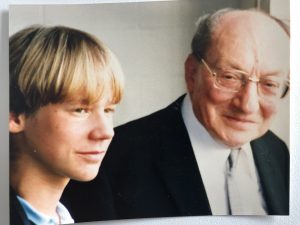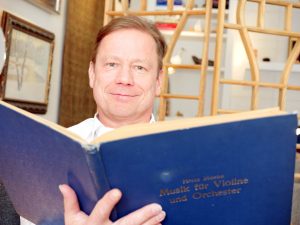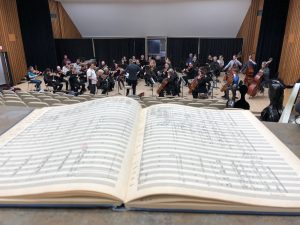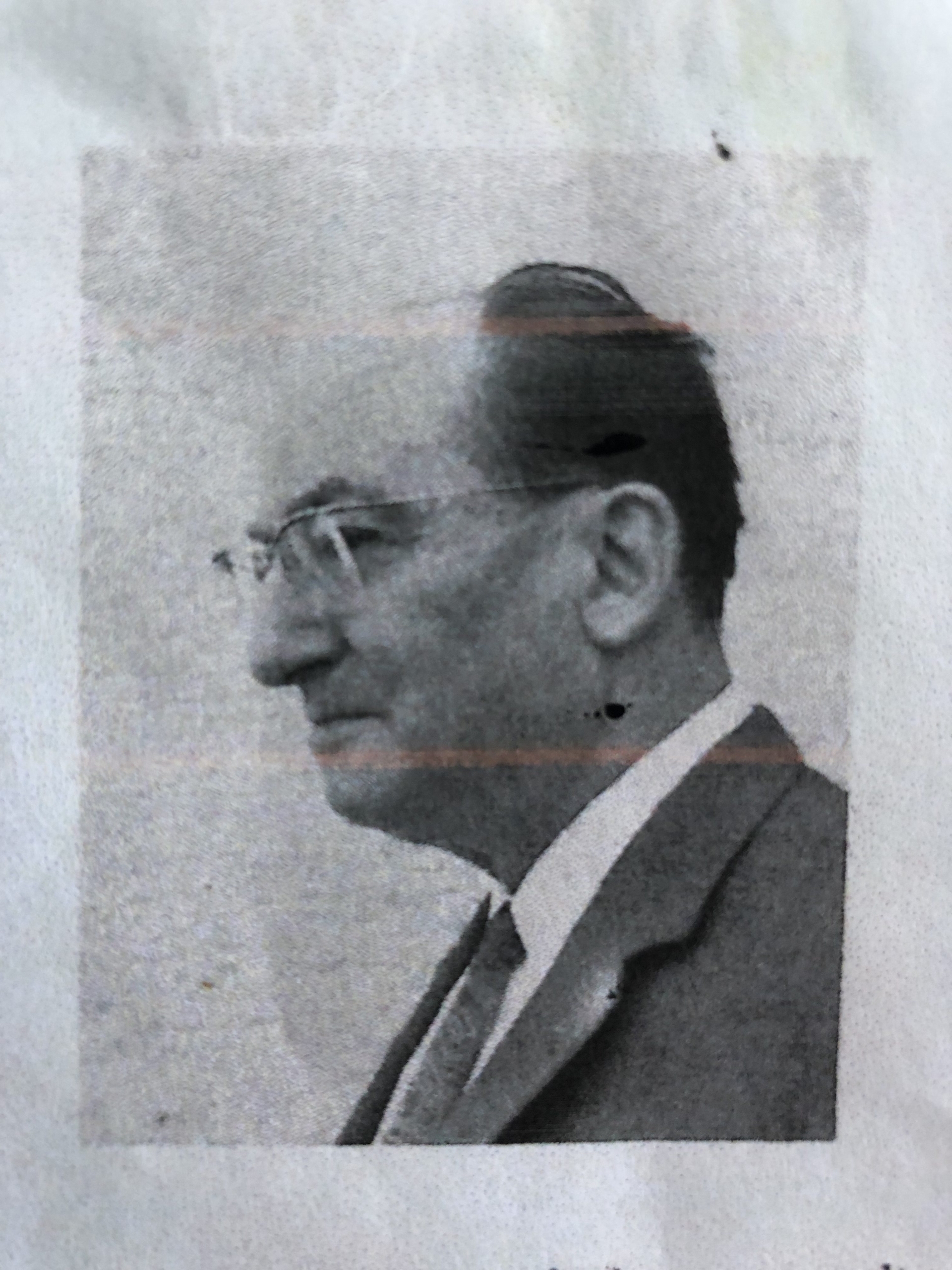Breaking the 80-year silence: SSO puts Moehn’s music centre stage
“My grandfather was a perfectionist with a super-fine musical ear. It’s what made him a great editor, he knew the pieces by heart.” This is how Johnnes Dyring remembers his grandfather Heinz Moehn.
Moehn is known the world over for his work as an editor of great musical works. Moehn specialized in editing works by many world famous composers; his editions of pieces like Mozart’s Requiem in d minor have become the gold standard for today’s performers. Moehn’s work as a composer, however, isn’t as well known.

A young Johannes Dyring and his grandfather Heinz Moehn. (photo provided)
Dyring always knew his grandfather was a passionate musician. The pair would often sit down at the end of a workday and listen to a symphony. Occasionally, Moehn would play his own compositions for his young grandson on the piano but stopped short of sharing them with the rest of his family.
“He (Moehn) was very critical of his own work,” says Dyring. “Composers become so self-critical that they can’t appreciate their own work. He would not talk about it. Even my father had no idea he wrote such great music.”
“Composers become so self-critical that they can’t appreciate their own work. He would not talk about it. Even my father had no idea he wrote such great music.”
It wasn’t until after Moehn’s death in 1992 that his body of work was gathered up by his family and given to Dyring for safe keeping. For 30 years, his grandson held on to these scores occasionally approaching orchestras in Europe to have them produced; the answer always – no.
That was until Dyring moved from Sweden to Saskatoon in 2015 to take a new job at the University of Saskatchewan as the Innovation Enterprise managing director.
“When I moved to Saskatoon, I brought the music with me,” says Dyring. “I was meeting with Dean McNeil in the music department and mentioned that I came from a very artistic family. Then I told him about my grandfather’s compositions.”

Johannes Dyring holding his grandfather Heinz Moehn’s compositions. (University of Saskatchewan)
McNeil quickly introduced Dyring to the executive director of the Saskatoon Symphony Orchestra Mark Turner and SSO conductor Eric Paetkau. Both men knew the name Moehn and had his editions in their music libraries. They were eager to see his original 1938 Violin Concerto and have others hear it.
“It’s not every day that a long-lost violin concerto is discovered in Canada, let alone here in Saskatoon,” says Turner. “It’s so special and rare that orchestra and audience get to experience work with such an intriguing background for the first time in 80 years. It’s like the discovery of buried treasure, and we all get to open it together.”
“It’s like the discovery of buried treasure, and we all get to open it together.”
For Dyring, the upcoming show is a fulfillment of a life-long dream.
“I’m so happy to have achieved this goal and I’m so proud to have my parents join us for the concert to hear my grandfather’s music for the first time,” says Dyring. “My father never imagined this would happen. There’s a lot of joy and also a peaceful and quiet reflection that this circle is finally closed.”
There are many facets to this show. Along with the performance of Moehn’s Violin Concerto featuring guest artist Timothy Chooi, Wake the Grain by Paul Suchan will also be performed. Suchan is the Saskatoon-based composer who took Moehn’s hand-written score and developed parts for the SSO to perform.

Saskatoon Symphony Orchestra players during a rehearsal of Moehn’s Violin Concerto. (University of Saskatchewan)
The second half of the program will feature a performance of Mozart’s Requiem in d minor, the edition that Moehn edited and is now played all over the world. The SSO will be joined by Saskatchewan born vocalists Andrea Lett and Jardena Gertler-Jaffe as well as Michael Harris, Daniel Thielmann, The University of Saskatchewan Greystone Singers and the Saskatoon Symphony Chorus.
This show and the history behind it also present an amazing research opportunity. USask musicology assistant professor Amanda Lalonde is working with SSO conductor Eric Paetkau to study Moehn’s work. The project, which has just received a $25,000 grant from the Social Sciences and Humanities Research Council will look at Moehn’s body of work and his place in 20th century German music. They hope it will add understanding to the impact of German . cultural policy on music before and during the Second World War.
For Dyring, the entire experience has taught him about the pioneering spirit here in Canada.
“This is not just a story about me and my family, this is also a story about Saskatoon that it’s possible this music can be played here.” Dyring explains, “They are taking a risk, doing something first with an unknown piece of music. It takes courage to do that. For me, this has been an amazing journey.”
*In advance of Saturday’s show, a special Music Talk event is being held to discuss Moehn’s work, its history and impact. The public is invited to join Mark Turner, Eric Paetkau, Amanda Lalonde and Johannes Dyring at McNally-Robinson Bookstore on March 19th at 7 p.m.

